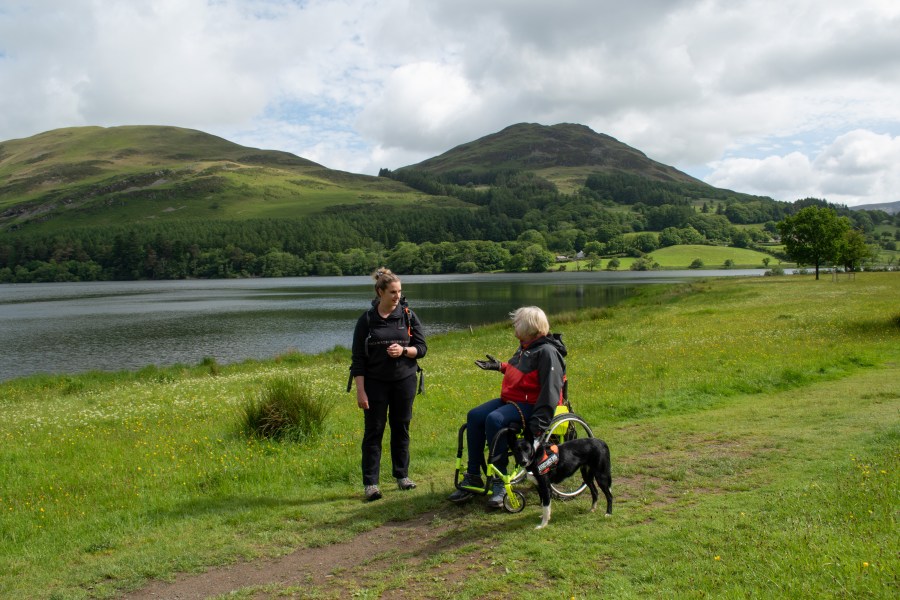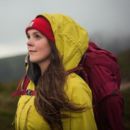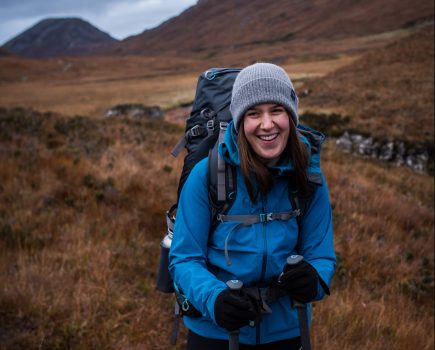Meet Charlotte Ditchburn, our creator of the month, a passionate outdoorswoman who is championing access rights for all.
Charlotte Ditchburn – otherwise known as the Public Rights of Way Explorer (the PROW Explorer for short) – knows the importance of time outdoors firsthand. The 26-year-old Hill and Moorland Leader and Access Field Officer has been campaigning for better access since 2018, but her efforts took on new significance as we spoke in the aftermath of the ruling to ban wild camping on parts of Dartmoor.
Main image: Charlotte Ditchburn, the PROW Explorer talking to campaigner Debbie North
Here, she talks to The Great Outdoors about access rights, overcoming PTSD by walking into wellbeing, and how you can make a difference in ensuring the outdoors is open to all.
When did you ‘become’ the PROW Explorer and what inspired you?
In 2018 I began my PROW Explorer blog as I felt there was a lack of understanding out there about public rights of way and access and I wanted to share my knowledge about this niche subject. I also wanted to share my personal experiences of the outdoors and provide advice to anyone getting started with their own outdoor journeys. This started as a weekly blog about general rights of way issues, how people could find their local access and how to tackle any problems if they came across them. I began an Instagram account to promote this and enjoyed sharing pretty pictures of fingerposts and obstructions I came across whilst at work as a Rights of Way Officer.
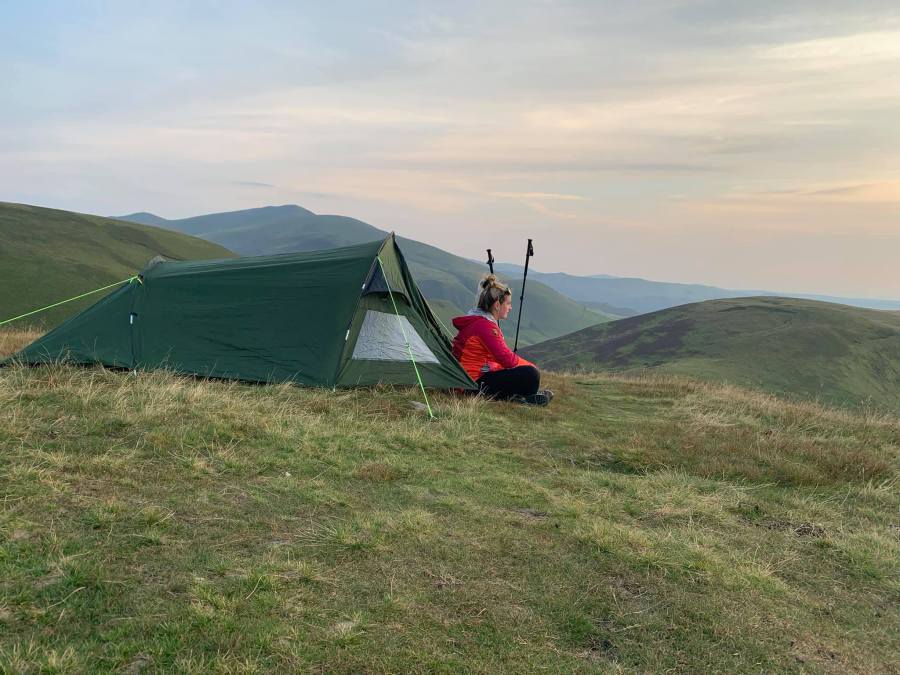
Charlotte’s first solo wild camp on Meal Fell.
Credit: PROW Explorer
It has since grown to be a platform where I can advocate access for all, as well as a place to gain momentum for campaigns to improve access to the outdoors, spreading the word to people about how they can get involved in this with me.
Why is it important to extend access to the outdoors for those who are marginalised?
Access to the outdoors should be fair and shared for all. Following the pandemic, the mental and physical benefits to our wellbeing, have been highlighted. These benefits are important to us all and should be available to us all and marginalised groups should not be excluded. Marginalised groups often lack the opportunities to access the outdoors due to there not being groups or role models that they can relate to or physical and social barriers. It is essential we all do our bit to change this and provide opportunities for all.
What do you think are the major barriers to access outdoors?
My passion for advocating access tends to focus on the barriers to disabled people and women in the outdoors. With roughly 117,000 miles of public rights of way in England and Wales and the right to roam over only 8% of the countryside and 3% of rivers, access is limited in itself for most of the population before we even think about additional barriers to this space.
According to the government, there are 14.6 million disabled people in Great Britain. This equates to over 20% of the total population who are registered as disabled (this does not include people with disabilities who are not formally recognised as disabled). This means our limited access to the outdoors is constrained even further for those with disabilities. The outdoors of course has physical barriers preventing access for people with additional needs, but there are many other barriers that can be overcome including the social model of disability treating disabled people differently and limiting what they can do. I’ve written a paper for the Institute of Public Rights of Way and Access Management about ‘improving accessibility of the rights of way network’ and feel there is so much that can be done to improve access for all in the outdoors by local authorities and the outdoor sector.
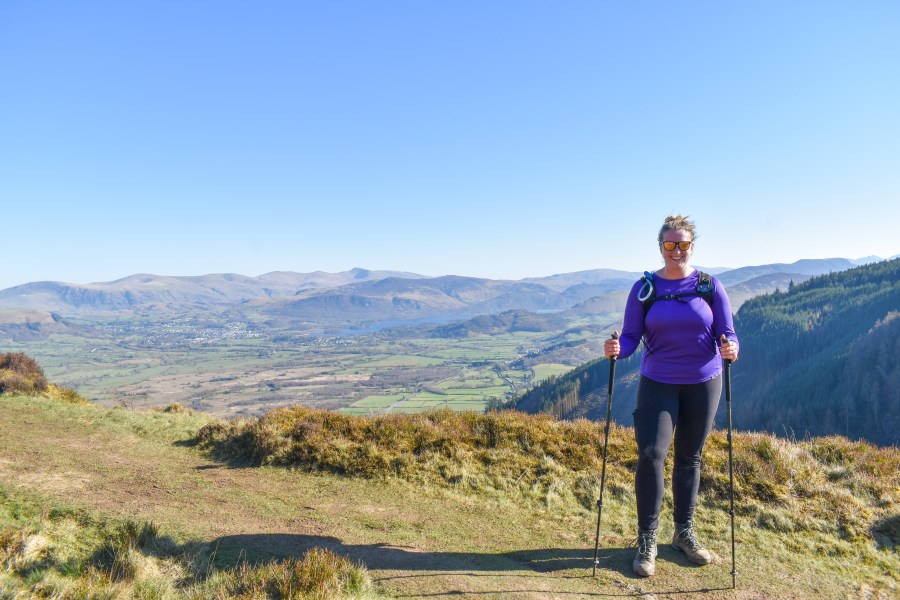
Charlotte hillwalking on Barf.
Credit: PROW Explorer
Gender can be a huge barrier to accessing the outdoors; from sexism to lacking confidence, there are many barriers preventing women from getting outdoors. Women make up 51% of the population in the UK yet the Women in the Hills research network revealed that in 2020 only 35% of participants in general outdoor activities, and 20% in mountain sports, are female. British Canoeing revealed that only 28% of its members are female (2018) and UK Climbing had just 13% female participants in their 2020 annual survey.
How can walkers advocate for access?
Walkers can get involved in advocating for access in many ways, from checking local routes to getting involved in national lobbying. Readers can get involved from home by signing petitions, and writing to your MP (there are plenty of access advocates with templates out there so it’s not as intimidating as it sounds). Becoming part of a membership organisation such as the BHS, The Ramblers or The Open Spaces Society can help to advocate access. Not only will your membership fee help to fund lobbying of the government but being a member will mean they can represent you on important issues without you having to get involved directly. You can also check if your local routes are correctly recorded on the definitive map (the legal record of rights of way) and if there’s anything missing or any discrepancies you can get involved in submitting applications to save routes. If you’re keen to get involved in person you can attend events and even a trespass with the Right to Roam campaign.
When did you first experience the outdoors yourself?
I was very lucky to grow up in the Lake District. My childhood was filled with being dragged up fells and birthday parties spent scrambling through Borrowdale. I’ve always enjoyed walking and horse riding in the Lakes but have recently taken up paddle boarding whilst living in Suffolk and have discovered a whole new love of the outdoors in the last couple of years. Exploring blue spaces I had never explored before has also sparked my love of open water swimming which has been an amazing release of stress.

Charlotte exploring Latrigg through the ears.
Credit: PROW Explorer
I love pretty much any outdoor activity, as long as it doesn’t include heights! I enjoy carriage driving at Calvert Trust, exploring on horseback, mountain biking, paddle boarding, motorbike adventures, and hill walking. If I had to choose one it would have to be horse riding, there’s no better way to see the outdoors than ‘through the ears’.
Can you tell us a bit about how walking has helped you, personally?
Walking has helped me immensely. Whilst at university in Newcastle I was diagnosed with PTSD, anxiety and depression, I went from being a reasonably active outgoing person to an introverted couch potato, pretty intimidated by going outside. I moved home and slowly started heading out into the hills with my family and this was the point I really began my recovery. The hills were healing for me, they gave me space to process what I was feeling, accept the help I needed and provided the fresh air my lungs so desperately needed. I slowly built up the courage to head out for walks on my own again and then built up to my first solo wild camp in the summer of 2021.
Walking was where I felt most at ease. I found myself enjoying it so much I wanted to share this amazing feeling of everything being lifted off my shoulders by these green spaces and decided to sign up for the Hill and Moorland Leader award training. I found this new challenge a great way to channel my anxiety and meet like-minded people who shared similar experiences and successfully passed my assessment in the summer of 2022. I don’t know where I would be without walking, it was a huge part of my childhood where I developed my sense of belonging in the outdoors, and then helped me rediscover this after a period of dark days in my life.
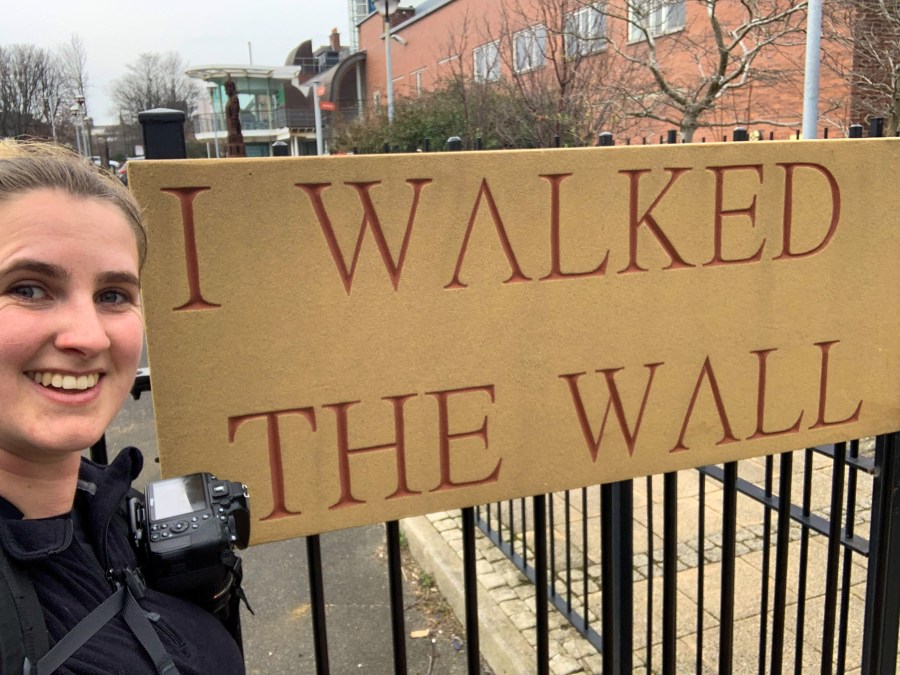
Charlotte at the Hadrian’s Wall Walk finish point.
Credit: PROW Explorer
Walking to well-being really can be done, it has taught me to take time out of the busy bustle of life, to take time for myself, and enjoy the small things. In March last year, I headed out on my first solo long-distance trail along Hadrian’s Wall. It felt quite symbolic to walk from my home county back to the place which had caused me such trauma. This walk really felt like a hike of empowerment, like I was taking control of my mental health issues and found myself finally able to understand why I felt drawn back to Newcastle to close that chapter of my life.
Follow Charlotte’s adventures: @publicrightsofwayexplorer.

